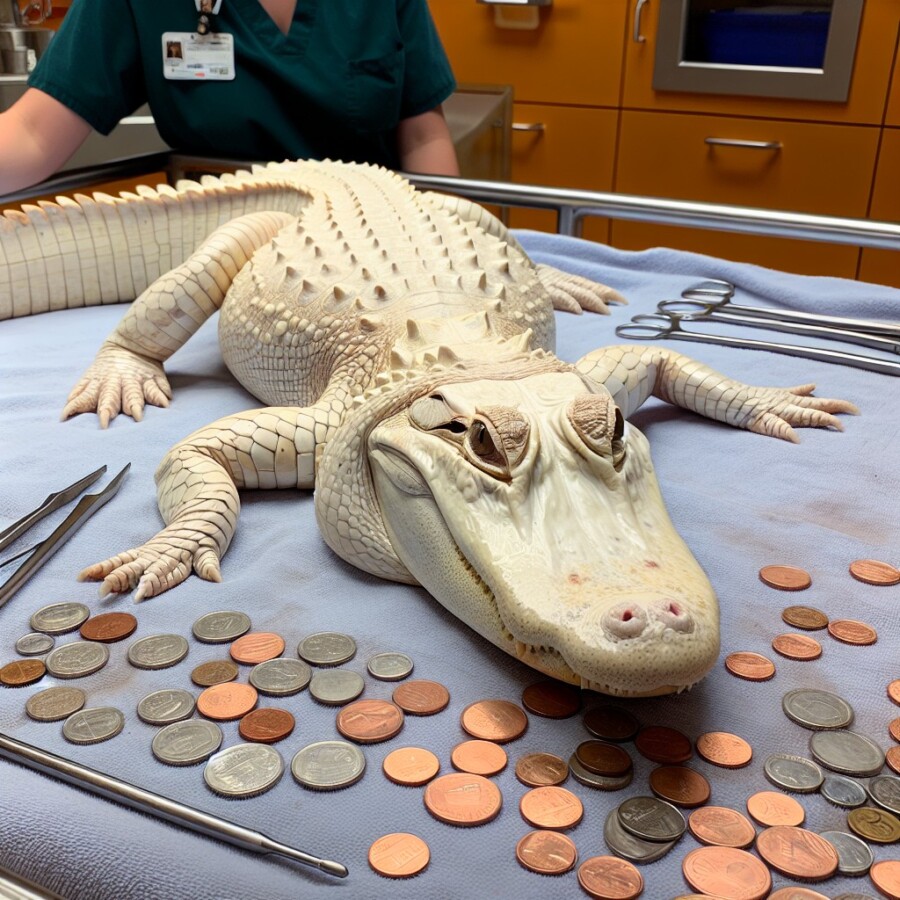The UK economy is expected to grow at a slower pace than previously anticipated over the next two years, according to the Office for Budget Responsibility (OBR). Inflation is projected to take longer to fall, and living standards are not expected to return to pre-pandemic levels until 2027-28. The OBR, an independent body, publishes economic forecasts twice a year to predict government finances. It now forecasts growth of 0.6% this year, better than expected, but has lowered its outlook for 2024 and 2025 to 0.7% and 1.4% respectively. The OBR attributes this to higher inflation and interest rates than initially forecasted.
The OBR predicts that inflation, currently at 4.6%, will only fall to 2.8% by the end of 2024 and reach the Bank of England’s target of 2% in 2025. Previously, it had expected inflation to surpass the target next year. The OBR also states that UK living standards, as measured by households’ real disposable income, will be 3.5% lower in 2024-25 compared to pre-pandemic levels, before gradually returning to normal in the following years. While this reduction is less severe than initially predicted, it still represents the largest decline in living standards since the 1950s.
The UK economy has been grappling with a combination of high inflation, rising interest rates, and weakened consumer demand, which has hindered growth. The Bank of England recently released slightly more pessimistic forecasts, predicting minimal growth in 2024 and 2025. The central bank has raised interest rates 14 times since December 2021 to combat soaring prices, leaving them at a 15-year high of 5.25%. Higher interest rates can discourage borrowing and investment, which can further slow down the economy. Additionally, while rates for savers have increased, mortgage rates have also risen, putting pressure on households. The OBR expects property prices to decline by approximately 4.7% in 2024.
In response to these challenges, Chancellor Jeremy Hunt announced tax cuts and an increase in benefits in his Autumn Statement. He acknowledged the need for improved productivity and highlighted that the private sectors in the US, Germany, and France are more productive due to higher investment. Hunt proposed measures to remove planning restrictions, facilitate capital raising for entrepreneurs, and reduce business taxes to bridge this productivity gap. He also mentioned that government borrowing and debt would be lower than previously forecasted for 2024 and 2025, attributing the improvement to a stronger economy and disciplined public spending.
Original news source: UK economy growth forecasts slashed for next two years (BBC)
Listen
Slow
Normal
Fast
Group or Classroom Activities
Warm-up Activities:
– News Summary
Instructions: Divide the class into pairs or small groups. Give each group a copy of the article or a summary of the article. Instruct them to read it carefully and then work together to create a concise summary of the main points. After a designated time, have each group share their summary with the class.
– Opinion Poll
Instructions: Divide the class into pairs. Give each pair a set of opinion statements related to the article. Instruct them to discuss each statement and share their opinions with each other. Afterward, conduct a class discussion where pairs can share their opinions and discuss any differences or similarities they found.
– Word Association
Instructions: Write the word “economy” on the board. Instruct the class to brainstorm as many words or phrases related to the economy as they can in a given time limit. Encourage them to think creatively and make connections between words. After the time limit, have each student share one word or phrase they came up with and explain its connection to the economy.
– Vocabulary Pictionary
Instructions: Prepare a list of vocabulary words from the article. Divide the class into small groups and give each group a set of vocabulary words. Instruct them to take turns drawing a word from their set, while the other group members try to guess the word. Encourage them to use their knowledge of the article to help them guess. After each word is guessed correctly, the group can move on to the next word.
– Pros and Cons
Instructions: Divide the class into small groups. Instruct each group to discuss the pros and cons of the economic forecasts presented in the article. Encourage them to consider both the positive and negative aspects of the forecasts, as well as any potential implications. After a designated time, have each group share their findings with the class and facilitate a class discussion on the topic.
Comprehension Questions:
1. According to the Office for Budget Responsibility (OBR), how long is it expected for living standards in the UK to return to pre-pandemic levels?
2. What are the reasons given by the OBR for the slower growth of the UK economy in the next two years?
3. What is the current inflation rate in the UK, and when is it predicted to reach the Bank of England’s target?
4. How does the OBR’s prediction for living standards in 2024-25 compare to its initial predictions?
5. What factors have been hindering the growth of the UK economy?
6. How many times has the Bank of England raised interest rates since December 2021?
7. What measures did Chancellor Jeremy Hunt propose in response to the economic challenges?
8. Why does Hunt believe that the private sectors in the US, Germany, and France are more productive?
Go to answers ⇩
Listen and Fill in the Gaps:
The UK economy is expected to grow at a slower pace than previously anticipated over the next two years, according to the Office for Budget Responsibility (OBR). Inflation is projected to take longer to fall, and living standards are not expected to return to pre-pandemic levels until 2027-28. The OBR, an independent body, publishes economic (1)______ twice a year to (2)______ government (3)______. It now forecasts growth of 0.6% this year, better than expected, but has lowered its outlook for 2024 and 2025 to 0.7% and 1.4% respectively. The OBR attributes this to higher inflation and interest (4)______ than initially forecasted.
The OBR predicts that (5)______, currently at 4.6%, will only fall to 2.8% by the end of 2024 and reach the Bank of England’s target of 2% in 2025. Previously, it had (6)______ inflation to surpass the target next year. The OBR also (7)______ that UK (8)______ standards, as measured by households’ real disposable income, will be 3.5% lower in 2024-25 compared to pre-pandemic levels, before gradually returning to normal in the following years. While this reduction is less severe than initially predicted, it still represents the largest decline in living standards since the 1950s.
The UK economy has been grappling with a combination of high inflation, rising (9)______ rates, and weakened consumer demand, which has hindered growth. The Bank of England recently released slightly more (10)______ forecasts, predicting minimal growth in 2024 and 2025. The central bank has raised interest rates 14 times since December 2021 to (11)______ soaring prices, leaving them at a 15-year high of 5.25%. Higher interest rates can discourage borrowing and investment, which can further slow down the economy. Additionally, while rates for (12)______ have increased, mortgage rates have also risen, putting pressure on households. The OBR expects property prices to decline by approximately 4.7% in 2024.
In response to these challenges, Chancellor Jeremy Hunt (13)______ tax cuts and an increase in benefits in his Autumn Statement. He acknowledged the need for improved productivity and highlighted that the private sectors in the US, Germany, and France are more productive due to higher investment. Hunt proposed (14)______ to remove planning (15)______, facilitate capital (16)______ for entrepreneurs, and reduce business taxes to bridge this productivity gap. He also mentioned that government borrowing and debt would be lower than previously forecasted for 2024 and 2025, attributing the improvement to a stronger economy and disciplined public spending.
Go to answers ⇩
Discussion Questions:
Students can ask a partner these questions, or discuss them as a group.
1. How do you think slower economic growth will impact the average person in the UK?
2. What do you think are the main factors contributing to the slower pace of economic growth in the UK?
3. How would you feel if your living standards were projected to be lower in the coming years?
4. Do you think the government’s tax cuts and increase in benefits will effectively address the economic challenges faced by the UK?
5. How do you think higher inflation and interest rates will affect the housing market in the UK?
6. What measures do you think the government could take to improve productivity in the UK?
7. How do you think the decline in property prices will impact homeowners and the overall economy?
8. Do you think the UK economy will recover faster or slower than other countries affected by the pandemic? Why or why not?
9. How do you think the rise in interest rates will impact borrowing and investment in the UK?
10. Do you think the government’s approach to public spending has been effective in improving the economy? Why or why not?
11. How would you feel if you were a business owner facing higher taxes? Do you think it would discourage investment?
12. What do you think are the potential long-term consequences of the decline in living standards in the UK?
13. How do you think the slower pace of economic growth will impact job opportunities in the UK?
14. Do you think the UK government should prioritize reducing inflation or stimulating economic growth? Why or why not?
15. How do you think the UK’s economic challenges compare to those faced by other countries around the world?
Individual Activities
Vocabulary Meanings:
Match each word to its meaning.
Words:
1. slower
2. inflation
3. living standards
4. growth
5. interest rates
6. forecasts
7. productivity
8. borrowing
Meanings:
(a) The cost of borrowing money, usually expressed as a percentage
(b) The rate at which something is growing
(c) The general increase in prices over time
(d) The prediction of future events or trends
(e) The level of comfort and wealth experienced by individuals or households
(f) The act of taking money from someone with the promise to pay it back later
(g) The measure of how efficiently resources are used to produce goods and services
(h) The rate at which the economy is expanding
Go to answers ⇩
Multiple Choice Questions:
1. Who publishes economic forecasts twice a year to predict government finances in the UK?
(a) The Bank of England
(b) The Chancellor of the Exchequer
(c) The Office for Budget Responsibility
(d) The Treasury Department
2. What is the current inflation rate in the UK?
(a) 2.8%
(b) 2%
(c) 4.6%
(d) 5.25%
3. When does the Office for Budget Responsibility predict that living standards will return to pre-pandemic levels?
(a) 2024-25
(b) 2027-28
(c) 2025
(d) 2024
4. Why has the UK economy been hindered in its growth?
(a) Low inflation, low interest rates, and strong consumer demand
(b) High inflation, low interest rates, and strong consumer demand
(c) Low inflation, rising interest rates, and weakened consumer demand
(d) High inflation, rising interest rates, and weakened consumer demand
5. How many times has the Bank of England raised interest rates since December 2021?
(a) 5 times
(b) 10 times
(c) 15 times
(d) 14 times
6. What did Chancellor Jeremy Hunt announce in his Autumn Statement to address the economic challenges?
(a) Tax cuts and an increase in benefits
(b) Higher interest rates and reduced government spending
(c) Reduced business taxes and stricter planning restrictions
(d) Increased government borrowing and debt
7. Which countries did Chancellor Jeremy Hunt mention as having more productive private sectors due to higher investment?
(a) US, Germany, and France
(b) UK, Spain, and Italy
(c) China, Japan, and India
(d) Australia, Canada, and Brazil
8. What does the OBR expect to happen to property prices in 2024?
(a) Increase by approximately 4.7%
(b) Decline by approximately 4.7%
(c) Remain stable
(d) Increase by approximately 2%
Go to answers ⇩
True or False Questions:
1. UK living standards, as measured by households’ real disposable income, will be 3.5% lower in 2024-25 compared to pre-pandemic levels.
2. The OBR predicts that inflation will only fall to 2.8% by the end of 2024 and reach the Bank of England’s target of 2% in 2025.
3. The UK economy is not expected to grow at a slower pace over the next two years, according to the Office for Budget Responsibility (OBR).
4. Chancellor Jeremy Hunt announced tax cuts and an increase in benefits in his Autumn Statement to address the challenges faced by the UK economy.
5. The OBR attributes the lowered growth outlook to higher inflation and interest rates than initially forecasted.
6. The Bank of England has not raised interest rates 14 times since December 2021, leaving them at a 15-year high of 5.25%.
7. The OBR forecasts growth of 0.6% this year, worse than expected, and has raised its outlook for 2024 and 2025 to 0.7% and 1.4% respectively.
8. Inflation is projected to fall sooner, and living standards are expected to return to pre-pandemic levels before 2027-28.
Go to answers ⇩
Write a Summary:
Write a summary of this news article in two sentences.
Check your writing now with the best free AI for English writing!
Writing Questions:
Answer the following questions. Write as much as you can for each answer.
Check your answers with our free English writing assistant!
1. According to the Office for Budget Responsibility (OBR), what is the projected growth rate for the UK economy in 2024 and 2025?
2. How does the OBR expect inflation to change in the coming years?
3. What is the expected impact of high inflation, rising interest rates, and weakened consumer demand on the UK economy?
4. What measures did Chancellor Jeremy Hunt propose in response to the economic challenges?
5. How does the OBR expect property prices to change in 2024?
Answers
Comprehension Question Answers:
1. Living standards in the UK are not expected to return to pre-pandemic levels until 2027-28.
2. The OBR cites higher inflation and interest rates than initially forecasted as the reasons for the slower growth of the UK economy.
3. The current inflation rate in the UK is 4.6%. It is predicted to reach the Bank of England’s target of 2% in 2025.
4. The OBR’s prediction for living standards in 2024-25 is 3.5% lower compared to pre-pandemic levels, which is less severe than its initial predictions.
5. The factors hindering the growth of the UK economy include high inflation, rising interest rates, and weakened consumer demand.
6. The Bank of England has raised interest rates 14 times since December 2021.
7. Chancellor Jeremy Hunt proposed tax cuts and an increase in benefits, as well as measures to remove planning restrictions, facilitate capital raising for entrepreneurs, and reduce business taxes.
8. Hunt believes that the private sectors in the US, Germany, and France are more productive due to higher investment in those countries.
Go back to questions ⇧
Listen and Fill in the Gaps Answers:
(1) forecasts
(2) predict
(3) finances
(4) rates
(5) inflation
(6) expected
(7) states
(8) living
(9) interest
(10) pessimistic
(11) combat
(12) savers
(13) announced
(14) measures
(15) restrictions
(16) raising
Go back to questions ⇧
Vocabulary Meanings Answers:
1. slower
Answer: (b) The rate at which something is growing
2. inflation
Answer: (c) The general increase in prices over time
3. living standards
Answer: (e) The level of comfort and wealth experienced by individuals or households
4. growth
Answer: (f) The act of taking money from someone with the promise to pay it back later
5. interest rates
Answer: (d) The prediction of future events or trends
6. forecasts
Answer: (h) The rate at which the economy is expanding
7. productivity
Answer: (g) The measure of how efficiently resources are used to produce goods and services
8. borrowing
Answer: (a) The cost of borrowing money, usually expressed as a percentage
Go back to questions ⇧
Multiple Choice Answers:
1. Who publishes economic forecasts twice a year to predict government finances in the UK?
Answer: (c) The Office for Budget Responsibility
2. What is the current inflation rate in the UK?
Answer: (c) 4.6%
3. When does the Office for Budget Responsibility predict that living standards will return to pre-pandemic levels?
Answer: (b) 2027-28
4. Why has the UK economy been hindered in its growth?
Answer: (d) High inflation, rising interest rates, and weakened consumer demand
5. How many times has the Bank of England raised interest rates since December 2021?
Answer: (d) 14 times
6. What did Chancellor Jeremy Hunt announce in his Autumn Statement to address the economic challenges?
Answer: (a) Tax cuts and an increase in benefits
7. Which countries did Chancellor Jeremy Hunt mention as having more productive private sectors due to higher investment?
Answer: (a) US, Germany, and France
8. What does the OBR expect to happen to property prices in 2024?
Answer: (b) Decline by approximately 4.7%
Go back to questions ⇧
True or False Answers:
1. UK living standards, as measured by households’ real disposable income, will be 3.5% lower in 2024-25 compared to pre-pandemic levels. (Answer: True)
2. The OBR predicts that inflation will only fall to 2.8% by the end of 2024 and reach the Bank of England’s target of 2% in 2025. (Answer: True)
3. The UK economy is not expected to grow at a slower pace over the next two years, according to the Office for Budget Responsibility (OBR). (Answer: False)
4. Chancellor Jeremy Hunt announced tax cuts and an increase in benefits in his Autumn Statement to address the challenges faced by the UK economy. (Answer: True)
5. The OBR attributes the lowered growth outlook to higher inflation and interest rates than initially forecasted. (Answer: True)
6. The Bank of England has not raised interest rates 14 times since December 2021, leaving them at a 15-year high of 5.25%. (Answer: False)
7. The OBR forecasts growth of 0.6% this year, worse than expected, and has raised its outlook for 2024 and 2025 to 0.7% and 1.4% respectively. (Answer: False)
8. Inflation is projected to fall sooner, and living standards are expected to return to pre-pandemic levels before 2027-28. (Answer: False)
Go back to questions ⇧















